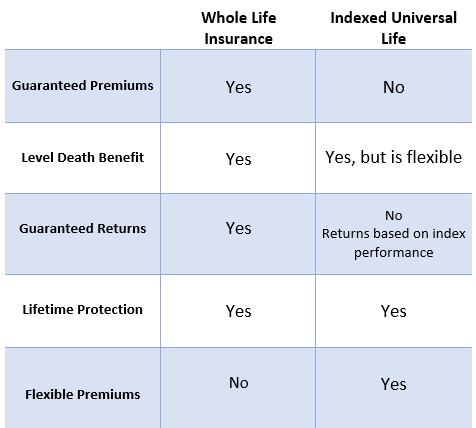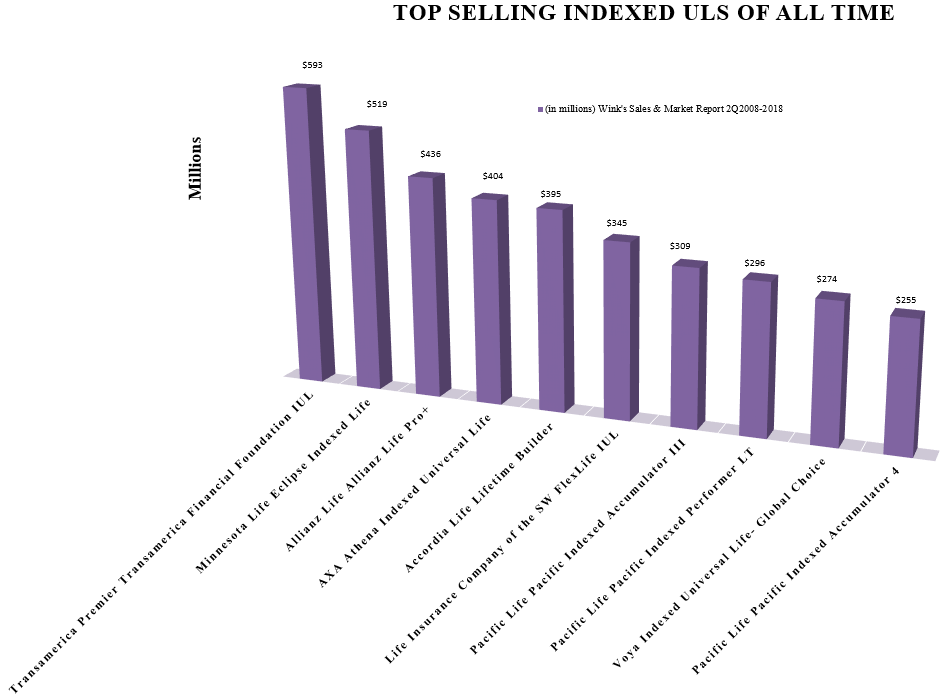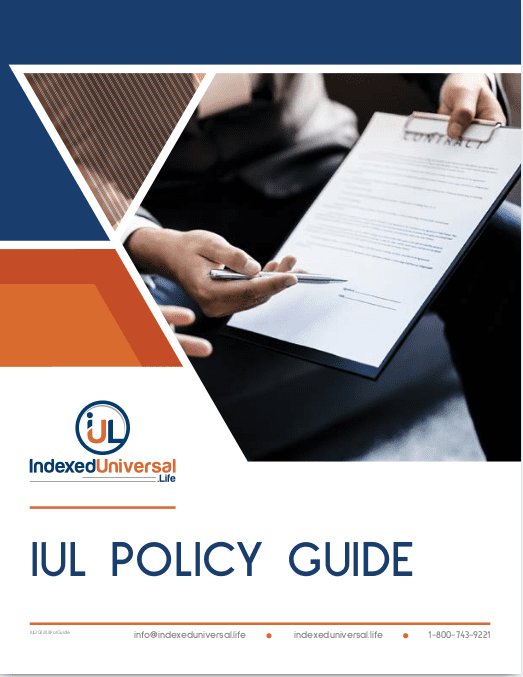All Categories
Featured
Table of Contents
Do they contrast the IUL to something like the Vanguard Total Amount Supply Market Fund Admiral Shares with no tons, an expenditure proportion (ER) of 5 basis points, a turnover ratio of 4.3%, and a phenomenal tax-efficient document of distributions? No, they compare it to some awful actively handled fund with an 8% load, a 2% ER, an 80% turnover proportion, and a horrible record of temporary funding gain circulations.
Common funds commonly make yearly taxable circulations to fund proprietors, also when the worth of their fund has actually decreased in worth. Shared funds not only require earnings reporting (and the resulting annual taxation) when the shared fund is increasing in worth, but can also impose earnings tax obligations in a year when the fund has dropped in value.
You can tax-manage the fund, collecting losses and gains in order to minimize taxed distributions to the financiers, but that isn't somehow going to alter the reported return of the fund. The possession of mutual funds might require the mutual fund proprietor to pay projected taxes (death benefit options universal life).

IULs are easy to place to ensure that, at the proprietor's fatality, the recipient is not subject to either income or estate tax obligations. The exact same tax decrease techniques do not work virtually too with common funds. There are many, usually costly, tax obligation catches linked with the timed trading of mutual fund shares, traps that do not relate to indexed life Insurance.
Opportunities aren't very high that you're going to undergo the AMT as a result of your shared fund circulations if you aren't without them. The remainder of this one is half-truths at ideal. While it is true that there is no income tax obligation due to your heirs when they acquire the earnings of your IUL plan, it is likewise real that there is no revenue tax due to your heirs when they acquire a mutual fund in a taxed account from you.
指数 型 保险
There are much better ways to avoid estate tax obligation concerns than buying investments with reduced returns. Shared funds may cause income tax of Social Protection benefits.

The development within the IUL is tax-deferred and might be taken as free of tax income via financings. The policy owner (vs. the shared fund manager) is in control of his/her reportable revenue, hence allowing them to reduce and even get rid of the taxation of their Social Protection advantages. This one is terrific.
Here's another very little concern. It's true if you acquire a common fund for claim $10 per share prior to the circulation day, and it distributes a $0.50 distribution, you are then mosting likely to owe tax obligations (possibly 7-10 cents per share) despite the truth that you haven't yet had any gains.
In the end, it's truly regarding the after-tax return, not exactly how much you pay in tax obligations. You are going to pay even more in tax obligations by utilizing a taxed account than if you purchase life insurance. You're also most likely going to have more cash after paying those taxes. The record-keeping demands for possessing mutual funds are significantly extra intricate.
With an IUL, one's documents are kept by the insurance provider, duplicates of yearly declarations are mailed to the proprietor, and circulations (if any type of) are totaled and reported at year end. This one is also type of silly. Naturally you ought to keep your tax documents in instance of an audit.
Cost Of Universal Life Insurance Policy
All you need to do is push the paper right into your tax folder when it turns up in the mail. Hardly a reason to acquire life insurance policy. It's like this individual has never bought a taxed account or something. Mutual funds are typically part of a decedent's probated estate.
In addition, they undergo the delays and expenses of probate. The profits of the IUL policy, on the various other hand, is always a non-probate distribution that passes outside of probate straight to one's called recipients, and is for that reason not subject to one's posthumous financial institutions, unwanted public disclosure, or comparable delays and expenses.
Medicaid incompetency and lifetime revenue. An IUL can give their owners with a stream of income for their whole life time, regardless of how long they live.

This is advantageous when organizing one's affairs, and converting assets to revenue prior to a retirement home confinement. Shared funds can not be transformed in a similar manner, and are usually thought about countable Medicaid possessions. This is one more dumb one supporting that bad people (you recognize, the ones who need Medicaid, a federal government program for the inadequate, to spend for their nursing home) should make use of IUL as opposed to common funds.
Universal Life Insurance Death Benefit Options
And life insurance policy looks awful when contrasted fairly against a retirement account. Second, people that have cash to buy IUL above and past their pension are mosting likely to have to be dreadful at taking care of cash in order to ever get approved for Medicaid to spend for their assisted living facility prices.
Persistent and incurable health problem rider. All policies will certainly allow a proprietor's easy accessibility to cash from their plan, typically forgoing any kind of abandonment charges when such people experience a severe health problem, require at-home care, or become confined to a retirement home. Mutual funds do not give a similar waiver when contingent deferred sales fees still relate to a mutual fund account whose proprietor needs to offer some shares to money the prices of such a keep.
Vul Vs Iul
Yet you obtain to pay more for that advantage (cyclist) with an insurance coverage policy. What a fantastic offer! Indexed global life insurance gives survivor benefit to the beneficiaries of the IUL proprietors, and neither the proprietor nor the beneficiary can ever lose cash due to a down market. Mutual funds supply no such guarantees or survivor benefit of any kind of kind.
I absolutely do not need one after I get to financial independence. Do I desire one? On average, a purchaser of life insurance policy pays for the real expense of the life insurance policy benefit, plus the expenses of the policy, plus the earnings of the insurance firm.
Equity Indexed Universal Life Insurance Contracts
I'm not completely certain why Mr. Morais included the whole "you can not lose money" once again here as it was covered fairly well in # 1. He simply wished to duplicate the most effective marketing factor for these things I expect. Again, you don't shed nominal dollars, but you can shed genuine dollars, along with face significant opportunity cost as a result of reduced returns.

An indexed global life insurance policy policy owner might exchange their plan for a totally various plan without triggering earnings taxes. A mutual fund owner can not move funds from one mutual fund company to an additional without selling his shares at the previous (hence triggering a taxable event), and redeeming brand-new shares at the last, often subject to sales costs at both.
While it is true that you can trade one insurance plan for another, the reason that individuals do this is that the initial one is such a terrible policy that also after purchasing a brand-new one and undergoing the very early, adverse return years, you'll still come out ahead. If they were sold the appropriate policy the very first time, they should not have any type of desire to ever before exchange it and go with the early, adverse return years once again.
Latest Posts
Nationwide Yourlife Indexed Ul Accumulator
Allstate Futuregrowth Iul
Nationwide Iul